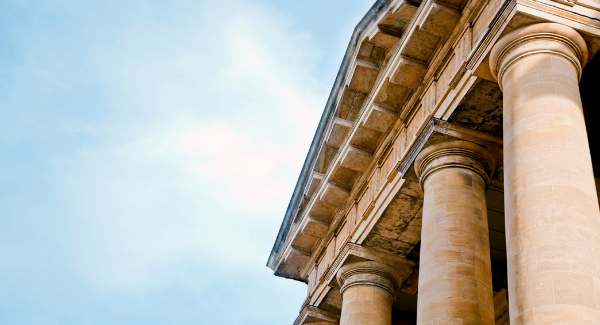Is estate planning the same as making a will?
You might think estate planning is only for the wealthy. Or perhaps you believe estate planning is only if you have a business.
Maybe you might feel that because you don’t have ‘an estate’, you don’t need an estate plan. But the truth is, if you own something, you do in fact have an estate.
So will having a will in place be good enough to pass on your wealth as intended?
It doesn’t matter who you are, where you live or what you do for a living, protecting your family and assets is important. That’s why estate planning is about much more than just drawing up a will.
What's an estate?
In legal and financial terms, an estate can mean a few things. The Merriam-Webster dictionary defines an estate as (among other things):
(1) possessions, property - especially: a person's property in land and tenements
(2): the assets and liabilities left by a person at death
(Yeah we had a chuckle at tenements too)
In simpler terms, your estate is all your assets, including anything jointly owned with someone else.
What's estate planning?
The MoneySmart site advises:
An estate plan records what you want done with your assets after your death. It can include documents such as:
- your will
- a testamentary trust (as part of your will)
- superannuation binding nominations.
Part of your estate plan may be in documents such as:
- any powers of attorney
- An Enduring Guardian (giving someone the right to choose where you live and to make decisions about your medical care)
- an advance healthcare directive (your needs, values and preferences for your future care)
Nobody wants to think about dying or being unable to make decisions for yourself. But we need to think about it and put our thoughts and wishes into writing. And this writing should preferably be legally binding.
What do you want to happen should you be unable to make decisions for yourself, due to ageing, illness or accident? How do you want to be cared for, both medically and financially? How will you protect your assets until you die?
How do you protect your legacy and preserve your family wealth? How do you want your assets bequeathed when you die? And who do you want controlling all this?
While all this does mean making a will, and we’re very lucky in Australia to (currently) have no inheritance taxes, that’s just one small part of estate planning. But as we always say, by strategically opting to bring your accountant into the estate planning process, you’ll ensure the structure of your estate and finances are optimised.
Estate planning may sound a bit daunting, or you may even feel it’s unnecessary, but it’s neither. By taking it one step at a time you can take the overwhelm out of the process. It’s best just to start with doing just one thing, and often that starting place is with a will.
Why do I need a will?
A will lets you decide how you want your assets – including money, property, investments and family heirlooms – distributed. Afterall, you may have graduated from the Warren Buffett school of parenting and prefer to allocate your assets in a more philanthropic manner.
If you own a business, you’re going to need more than a will to sort out those assets as well.
Back to the MoneySmart site:
A will is a legal document stating what you want to happen to your assets when you die. It is part (but not all) of your estate plan.
Your will can cover things like:
- how you want your assets shared
- who will look after your children if they're still young
- any trusts you want to set up
- how much money you'd like to give to charities
- plans for your funeral.
Although a will may cover most of your assets, it won’t cover everything. It’s unlikely to cover any life insurance or other insurance payouts. Or your superannuation, unless you’ve specified beneficiaries.
Are you part of a blended family and how is that all going to work?
What’s more, if you have a business, a will really won’t cut it. You need to have a clear succession plan in place.
Sounds familiar, right? And these are just ‘tip of the iceberg’ things, common to most people.
It really doesn’t take long to realise estate planning is not daunting, but instead, something you should be thinking about right now.
What happens if I don't have a will?
We want to start by saying it’s never too early or too late to draw up a will. Because when you die without a will, you die ‘intestate’ meaning the law dictates who gets your money and assets. What you or your family want means nothing.
Your assets will be distributed in line with the rules of intestacy. This may include surviving relatives who you don’t want to inherit your assets.
Perhaps even worse, if you don’t have surviving relatives closer than a first cousin, the government gets your money.
(Now if that doesn’t get you tripping over yourself to book an appointment with one of our experienced financial advisors or estate planners today, we’re not really sure what will!)
Don’t make the same mistakes as others. Don’t leave your estate to chance. Or to a long lost relative. Or to your state government. Yikes!
Estate planning isn’t the same as making a will. So, contact Kelly+Partners today to get your house in order to protect you, your family, your business and your assets before it’s too late.
Share this
You May Also Like
These Related Stories

Getting your legal affairs in order: Estate planning and Power of Attorney

Intergenerational estate planning

/Brand/Logos/Kelly%20Partners%20Accountants%20Logo/Kelly-Partners-Accountants-Horizontal-Logo.webp?width=1500&height=212&name=Kelly-Partners-Accountants-Horizontal-Logo.webp)